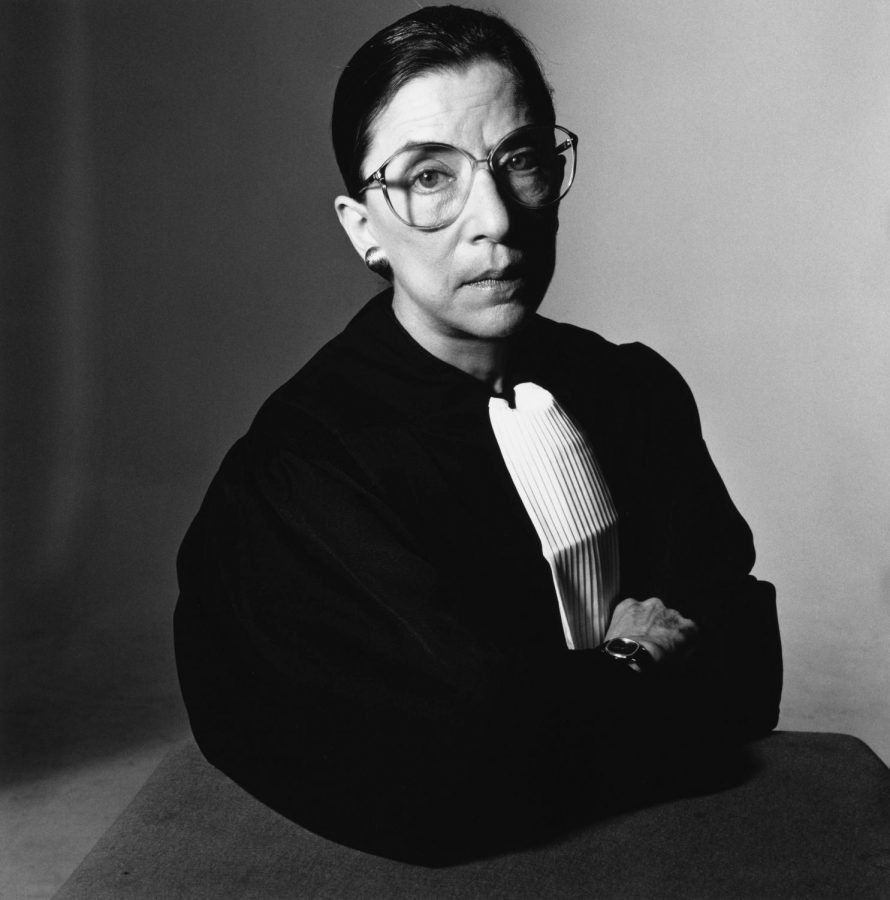Ginsburg and Barrett: Opposites On The Court
October 20, 2020
Ruth Bader Ginsburg, a feminist icon that served twenty-seven years on the Supreme Court, died on September 18th, 2020. With only four weeks until election day, Ginsburg’s death has brought on political mayhem. As Ginsburg laid in her bed, only a few days from her death, she told her granddaughter Clara Spera that “my most fervent wish is that I will not be replaced until a new president is installed.” Ginsburg knew what would happen after she died and hoped that there would be no decision made until the election was over.
Not surprisingly, Ginsburg’s wish was ignored. Senate majority leader Mitch McConnell delivered a statement right after Ginsburg’s death in a press release that “President Trump’s nominee will receive a vote on the floor of the United States Senate.” In comparison to 2016, McConnell seemed to contradict his own beliefs. Back in 2016, former Supreme Court Justice Antonin Scalia had passed away leaving the position open. Former President Barack Obama at the time wanted to place his nominee for the Senate to vote.
Just an hour after the news of Scalia’s passing, McConnell made it clear that there would be no nominee until the next election. Fast-forwarding to 2020 now Democrats are the ones attempting to reject President Donald Trump’s nominee while Republicans want to push it through.
The replacement on the Supreme Court has turned into a political battle between Republicans and Democrats who gets the majority of the court. Presently, Trump has placed his nominee for the supreme court, Amy Coney Barrett. Not a lot of people know very much about Barrett, but the Republican party is very supportive of Trump’s decision.
The American people should be getting familiar with the political views of Amy Coney Barret, so here are a few. Barret is very involved in anti-abortion laws which places a big risk on abortion and the Affordable Care Act. Barrett made it very clear that if she were to be put into the Supreme Court she would invalidate the A.C.A. and take away healthcare that targets abortion rights.
For those who are not familiar with the Affordable Care Act, it was placed by ex-President Barack Obama. Also known as Obamacare, this act’s primary goal was to make affordable healthcare available to more people, expand the Medicaid program, and support innovative medical care delivery. Some people may be wondering what will happen if that act is taken away so here it is. According to the Economic Policy Institute, the consequences of the repeal would be 29.8 million American people losing their health insurance, and a total of 1.2 million jobs being lost.
In Pennsylvania alone, a total of 956,000 people would lose their healthcare. Not only would this hurt American people, but it would be harming the economy that is already struggling. In a poll run by CNN, 57% of Americans favored the ACA and 61% did not want the Supreme Court to overturn it. Although this act does raise taxes that help pay for people with Obamacare, overall the positive outcomes of this have suppressed the bad ones.
From the standpoint of the working American who is under their own health insurance plan, it seems to be unnecessary that they have to pay taxes for other people’s health insurance. Yet from a moral standpoint, it only seems right to put in some money that helps the people who need it.
But the question is, what does Amy Coney Barret have to do with this? Barret has made it clear that she does not support the ACA and if she is voted into the Supreme Court, the majority would be 5-4. This allows Republicans and conservatives the chance to overturn the Affordable Care Act, which they have been trying to do for the last ten years. In the long run, many people and the economy would suffer from the overturning of the Affordable Care Act. Along with a pandemic going on in the United States, even more, people would be greatly affected as they cannot pay for their own health care.
The death of Ruth Bader Ginsburg is tragic. She served for the country and served as an advocate of human rights and women’s rights. Overall the loss of this woman will continue to take a toll on American lives for years to come.



